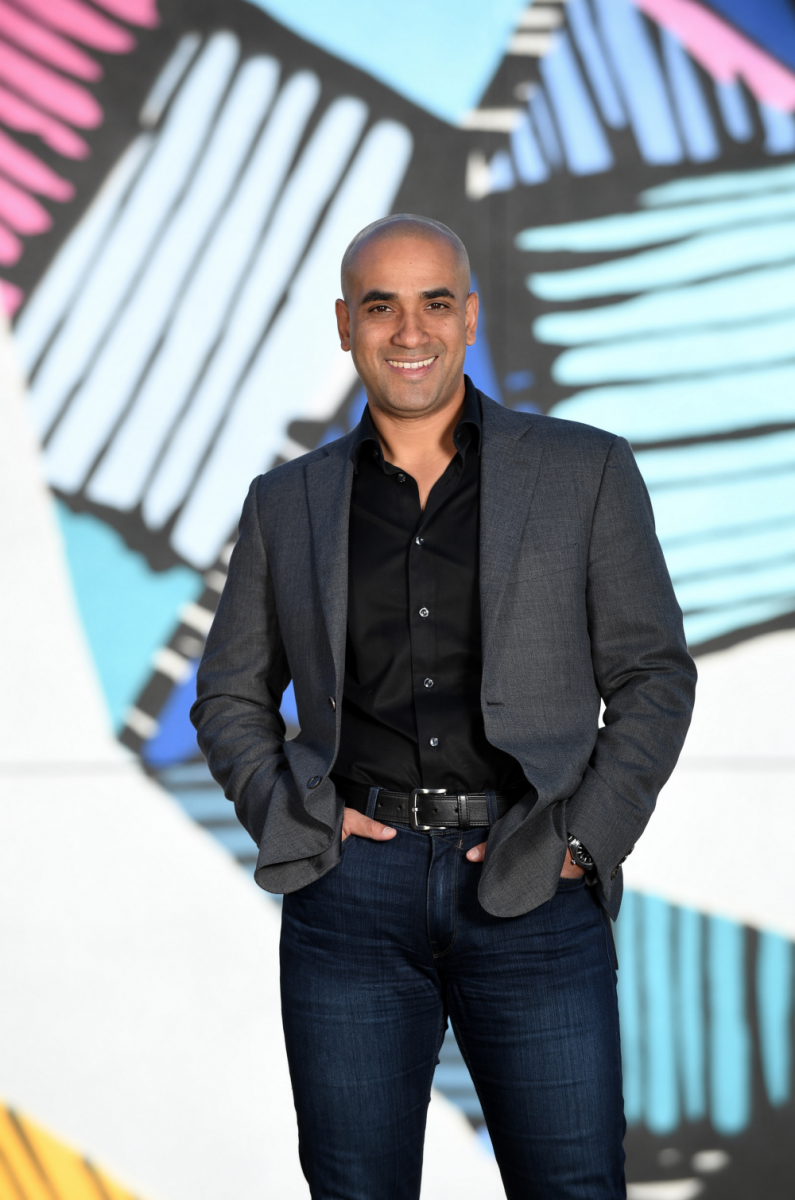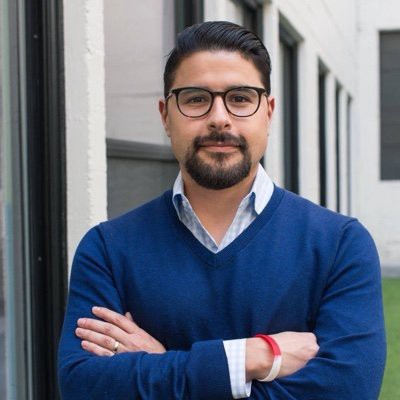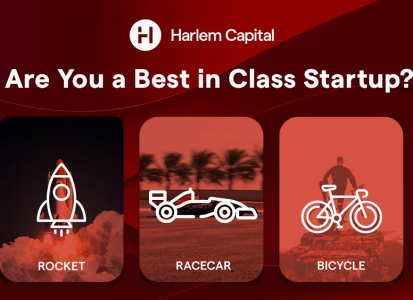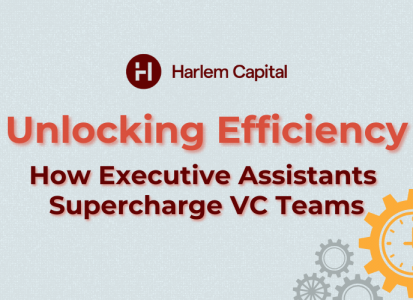Harlem Capital Interviews 4 Founders of Color on Fundraising $29MM
by Harlem Capital
As investors at Harlem Capital, we see founders from one side of the table when they’re pitching their companies. We might be one of many VC firms that they meet with and we don’t know what their experiences are like with other firms. We know the troubling statistics for the low levels of VC funding that reach women and minority founders.
So, understandably, we were really excited to listen to founders share their experiences with fundraising to better understand their challenges. In sharing their stories, we want to reveal what they are facing and unearth how the VC ecosystem can better serve women and minority founders. This is the final piece of our 5-part Founder Series.
The Power of the Network

Conversations with founders revealed the importance of networks for building relationships with VCs and ultimately getting funding. Jean Brownhill, founder and CEO of Sweeten, raised $9.8M over 2 fundraising rounds. Sweeten is an award-winning, free service that helps people find the best general contractors for renovation projects. When describing her fundraising process, like many of the founders we spoke to, Brownhill described a challenging process. She shared, “I think raising money is not easy, full stop. It’s not easy for anyone. But specifically for women and women of color. Statistically, it seems like it might be easier for me to be struck by lightning than raise venture capital. Whereas other folks might talk to 25 or 50 firms before they raise their round, we talked to 200+ for our Series A. For all of our rounds we’re over 300. That just means we’ve had to work a lot harder.”
She pointed to a few factors for why fundraising as a black woman was particularly difficult.
She explained, “the things that come to mind are so multidimensional, but the first is that we just don’t have a network. We don’t have a built in network of folks that we can go to get feedback on our ideas or have a safe space to learn. We are learning as we’re burning through valuable and hard to get connections. We also don’t have channels for back channeling.
When you’re pitching and you’re hearing no, the reasons that firms tell you no is never the real reason. There’s always some other thing that they don’t feel comfortable saying to your face. And we don’t have a lot of ways to back channel to get the real information. So it becomes adjust and tweak your pitch because you’re not getting real feedback. You’re getting very generic feedback. I think that pattern recognition is real when you’re in the room. And then, the pattern recognition is amplified by the fact that you don’t ever socialize together. I see events held for founders and slowly over time I’ve been introduced and invited to more of them. But I see how that put me at such a disadvantage early on. If I had been at the parties originally, had connections that were knowledgeable about the industry that could prepare me for the actual pitch, and then had people on the inside to back channel what the real feelings were about that pitch, I think that would have been wildly powerful.
“And things like those are the systemic challenges for all of us who are outsiders in this world.”

Conversation with Sevetri Wilson, founder and CEO of Resilia (formerly ExemptMeNow), about her fundraising experience unveiled similar themes. In 2018, Wilson completed a $2.1M raise for Resilia, a technology platform that helps nonprofit organizations increase capacity and enable enterprises that deploy billions of dollars to scale impact. As she reflected on her raise, she shared powerful advice for other black female founders raising venture funding. “It’s important to take a step back,” she said, “I had to take a step back and make more connections. Black female founders need to identify allies. Often people immediately look for those who like us, but we should also look for people that don’t look like us, because resources, networks, and connections, won’t always be from people that look that look like you. It’s incredibly important to build community and have people who will understand your challenges.”
Seeing VC Network’s from the Founder’s Eyes

“Fundraising was a total nightmare, it was really really tough,” Joseph Heller remarks. Heller founded his company, The/Studio, in 2013 and since then has raised $11M in funding. The/Studio offers an on-demand, custom manufacturing platform for product development. Like Brownhill and Wilson, Heller explains that his challenges with fundraising stemmed from a lack of a strong network. He notes, “the first thing is that I didn’t have a network. I had one friend that used to be a VC so I started with him and built a network from there. But VCs gravitate to working with founders that they know and that are in their network. Being on the outside of that is really, really challenging.” He continued to share his explanation for why VC’s rely on networks so heavily. “Though, I try to understand it from the VC’s perspective. If you’re a VC and you invest in someone that has had an exit before or is a known quantity in Silicon Valley, if the startup ends up losing all it’s money, no one is going to say anything to you, because it’s a safe bet that other people raised their hand to invest in.” But if you invest in a founder that’s really not known, and it ends up not being successful, the whole fund is going to say ‘I told you so’. So I think the risk reward in that case just doesn’t pay off. I realized during my fundraising that in the early stages, that VCs are really investing in the team and the entrepreneur. It’s a bet on that person and if you have no data point on that person then, why take that risk? I don’t think that’s the right way to look at it. But I think that’s the way VCs look at it and that makes it challenging for a lot of founders.
I do think as VC diversifies, and I see it happening, I think you’re going to get different perspectives and networks, which will lead to more diverse entrepreneurs getting funding.”
Perception of the Opportunity

Sean Salas is the cofounder of Camino Financial, an online finance company focused on lending to Latino-owned businesses to help them grow and meet an unmet credit demand. He started the company in 2014 with his brother, Kenneth Salas, and together they raised $5.75M in equity capital over several rounds. When asked about his thoughts on the challenges of raising VC funding, Sean Salas’ said that for VCs, ‘It’s the perception of the opportunity.
The reality is that we don’t have enough minorities and women in investment decision-making roles in Silicon Valley. It’s that simple. If you put more people that look like us in those decision-making roles, we will find that we are investing more in minority founders. Period. I fundamentally believe in that.”
When pitching Camino Financial to investors, Sean Salas found that he spent a lot of time explaining to people why it was necessary for the platform to focus specifically on Latinos. While the market opportunity was clear, an over $6B credit market, many VCs didn’t see why Camino Financial might resonate more with customers than existing companies. Salas explained through an analogy. He began with a question, “Why does my mom go to the Mexican supermarket down the street? First of all it’s down the street. Second, it’s name has strong brand appeal and they have all the special ingredients that you can’t get other than at a Mexican supermarket. But also, when she goes to the cash register, she not only sees someone that looks like her, but speaks her language. Same thing with Camino Financial. We’re positioning our brand in relevant spaces and named in a way that appeals to the cultural backbone. When people go to Camino Financial online and ask for a loan, not only can they get approved for the loan, they’re getting it at a competitive price point. We’ve built this robust membership experience that not only is in English and Spanish, but represents our members in a way that others couldn’t do it. It’s a fully integrated experience and those experiences make a difference. So just understanding that, was a leap of faith for a lot of VCs. Now if I had explained that to a fellow Latino, or other minorities, I think it would resonate a lot more quickly.”
“If you look at my initial investors, I think 60% of them were minorities. I think it really does matter. I know it can come off weird to some people, ‘like c’mon really, does that really matter, having people of diverse backgrounds?” But I know it does, because had it not been for people that got it, who understood the community we’re trying to reach, fundraising would have been even more difficult.
“It’s hard for VCs to give you the benefit of the doubt when they don’t understand or cannot relate to the customer pain point. Moreover, many VCs don’t know how to source deals that are disruptive plays into these underrepresented markets. Why? Because their entrepreneurship network is not as diverse as one would hope. So it’s not surprising that the people who invested in me have diverse networks and/or are underrepresented minorities themselves. My board is so diverse because those are the people that got it from Day 1 and have doubled down their conviction since investing in Camino Financial. And so, getting more diverse people in decision-making roles is the way you fix the issue. It’s really that simple”
Thank You to the founders included in this article:
- Jean Brownhill
- Sevetri Wilson
- Joseph Heller
- Sean Salas


